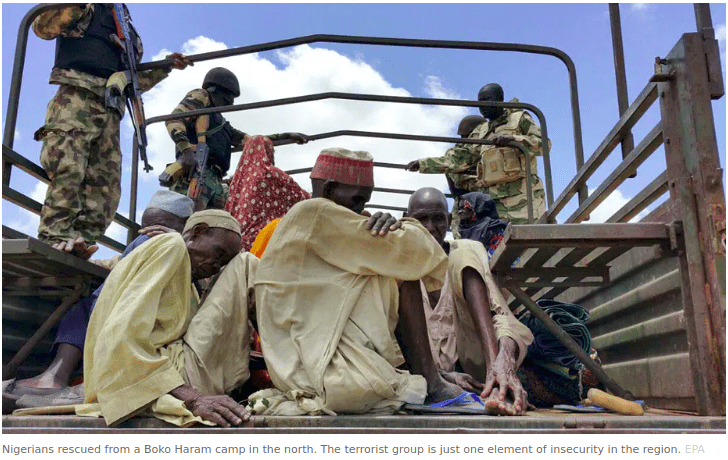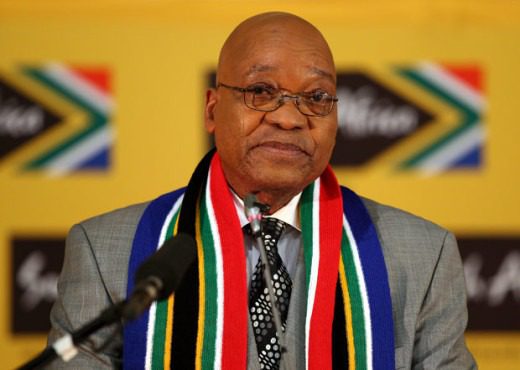Economic Issues
Are We Helping The Poor? -By Seun Elere
Are we really helping or hurting the poor with this policy? The poor Nigerians should not be made to adjust to this policy, it needs to be re-evaluated and adjustments made where possible. This has added to the economic woes of many Nigerians.

A couple of days ago, a friend narrated how he went shopping for cash, and (when he eventually got it), it cost him N600 to get N3,000. This means that his purchasing power was drastically reduced by 20% in an already inflation-ridden economy. I also remembered going to a local market to buy beef, but after over 30 minutes of wandering the market, I could not find a meat seller willing to accept payment by bank transfer. I saw several sellers starring harrowingly at the pile of meat sitting comfortable on their tables, but no sales besides the constant greetings from the flies around their table because they only sell in cash. Eventually, I located one who was willing to accept bank transfers but before I could say Jack, he warned that I would have to pay 7% more than the usual price because of bank charges. As if that wasn’t enough, after the transfer, I must wait until he received notification from his bank that the fund transfer was successful. These experiences weigh heavily on my mind. This means that on average, a consumer will most probably loose more than 27% of their money to buy food without considering the time wasted in the process.
A couple of days later, I visited a kiosk in my neighborhood to buy a few items costing a total of N500. I excitedly removed my card to pay, but lady at kiosk told me, “Oga, I beg you go give me cash o unless you go pay N100 more for bank transfer charges” and as we were arguing, she mentioned a customer that had earlier bought a cup of garri, a N50 worth of groundnut, and a N50 worth of sugar (totaling N200), and she had to charge him N50 more for bank charges. On hearing this, I became sober, and for a few seconds, I reflected on the possible predicament of that customer. S/he probably could only afford that garri, but was made to pay 25% more than the actual cost of that garri. These are few highlights of the quandary that consumers in Nigeria face as a result of the cash shortage.
Food affordability is threatened due to shrinking purchasing power. It is said that an average Nigerian spends 80% of their income on food, and, unfortunately, now the remaining 20% is expended on buying the money to buy the food. This makes Nigerians even poorer considering the uncertainty around how other living costs (transportation, housing, tuition fees, and other related bills) would be paid. The recently released data by the National Bureau of Statistics shows that consumers are already feeling the brutal impact occasioned by this unexpected scarcity in cash. The report shows that between December and January prices of, amongst others, edible oil, rice, beans and beef have increased by 1.89%, 1.71%, 1.33% and 1.71% respectively.
Small businesses are not immune to the cash crunch. Many of the small businesses had hitherto operated without a bank account, and the policy came as a shock to them. There were little or no social marketing efforts to onboard this section of the population that is contributing immensely to our economy before the policy was implemented. We now have a situation where small-holder farmers are selling their produce for far less than their production costs to customers willing to pay in cash. This would almost certainly have an impact on food production because the farmers may not be as motivated to farm in the next season. This is also already increasing food waste because even those willing to sell their produce for less in cash cannot get buyers due to the same cash problem. The SMEs with bank accounts are not left out either. Unless they adopt the strategy of the kiosk owner I narrated above, they would be amassing bank charges, which will eventually eat into their very little profit. We know that currently, every deposit into an account attracts some charges in addition to other account maintenance and notification charges. There is also the challenge of failed bank transactions. Most sellers opted for cash transaction because they are afraid that the transaction would fail and money reversed back to the customers. A few traders I interrogated told me that they had several thousands of naira worth of transactions that they have not been able to verify. There is also the issue of fake transfer alerts. Many petty traders are loosing their money and goods to fraudsters.
Hunger and frustration are key drivers of conflict. A policy that is meant to help the poor shouldn’t be hurting them this badly. There is need to quickly address this cash issue to prevent a spike in crime and other related social vices. We redesigned the N200, N500, and N1,000 notes, but the other variant of the Nigerian currency seems to have gone into oblivion as well. Shouldn’t we be able to access N5, N10, N20, N50, and N100 notes? The weight of a million naira in N100 notes is enough to discourage anyone with bad intentions from accessing it for large sum withdrawals.
Are we really helping or hurting the poor with this policy? The poor Nigerians should not be made to adjust to this policy, it needs to be re-evaluated and adjustments made where possible. This has added to the economic woes of many Nigerians. The apex bank needs to revisit its strategy and ensure adequate cash is in circulation to avert this imminent threat to our already precarious peace and food system.




















